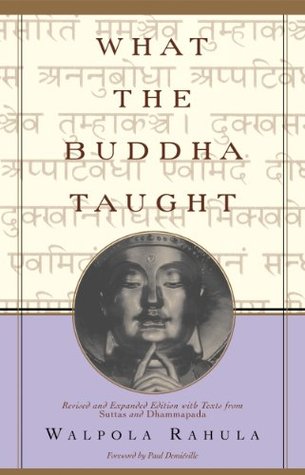More on this book
Community
Kindle Notes & Highlights
Read between
September 26 - December 27, 2021
The Buddha was not only a human being; he claimed no inspiration from any god or external power either. He attributed all his realization, attainments and achievements to human endeavour and human intelligence.
Buddhism, as sin is understood in some religions. The root of all evil is ignorance (avijjā) and false views (micchādiṭṭhi). It is an undeniable fact that as long as there is doubt, perplexity, wavering, no progress is possible. It is also equally undeniable that there must be doubt as long as one does not understand or see clearly. But in order to progress further it is absolutely necessary to get rid of doubt. To get rid of doubt one has to see clearly.
Let us take only one example. You experience an unhappy, sorrowful sensation. In this state your mind is cloudy, hazy, not clear, it is depressed. In some cases, you do not even see clearly why you have that unhappy feeling. First of all, you should learn not to be unhappy about your unhappy feeling, not to be worried about your worries. But try to see clearly why there is a sensation or a feeling of unhappiness, or worry, or sorrow. Try to examine how it arises, its cause, how it disappears, its cessation. Try to examine it as if you are observing it from outside, without any subjective
...more
Burcu Topaloglu liked this
The Buddha tells him that there are four things which are conducive to a man’s happiness in this world: First: he should be skilled, efficient, earnest, and energetic in whatever profession he is engaged, and he should know it well (utthāna-sampadā); second: he should protect his income, which he has thus earned righteously, with the sweat of his brow (ārakkha-sampadā); (This refers to protecting wealth from thieves, etc. All these ideas should be considered against the background of the period.) third: he should have good friends (kalyāṇa-mitta) who are faithful, learned, virtuous, liberal
...more


